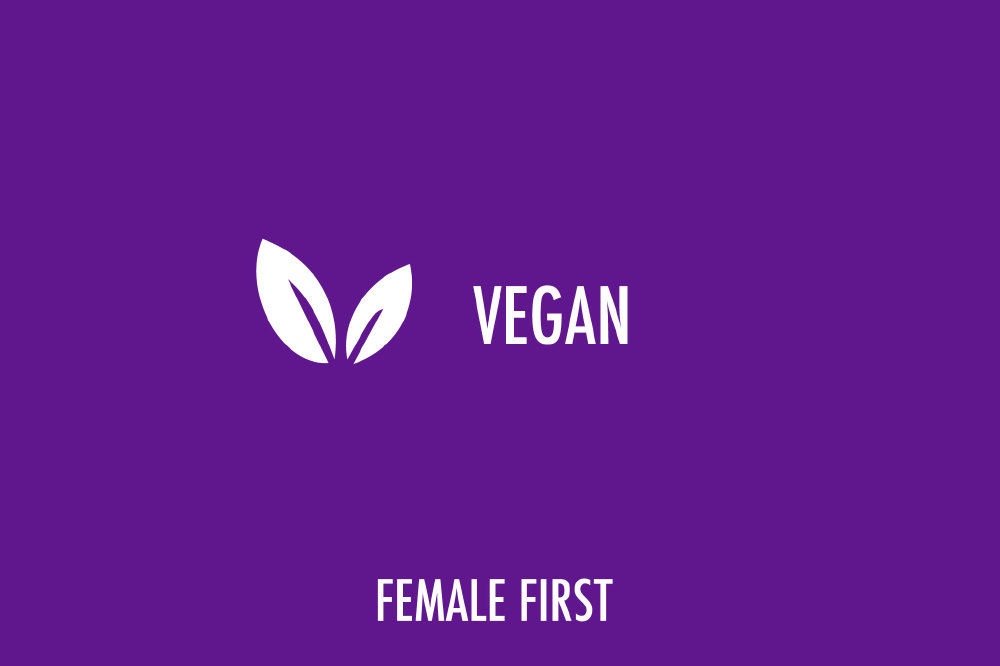It's World Vegan Day! So what better way to celebrate than to tell you some of the foods you probably thought were safe to eat as a vegan, actually aren't vegan at all? Eating a non-animal-product diet isn't as easy as it sounds; after all, we rely on other creatures to pollinate and fertilise our crops!

Vegan on Female First
Here's a list of foods you should watch out for if you want to stick to a vegan diet:
1. Honey
The uninitiated are likely to forget about this one when ticking off non-vegan ingredients, but as honey is produced by bees, it counts as an animal by-product. It's a difficult argument; most independent apiarists tend to go out of their way to care for their bees, and only remove honey in its excess. However, when it comes factory farming, in some cases, all of the honey is removed and bees can be either killed or fed a cheaper syrupy substance that has few of the nutrients they need. Either way, removing all the honey from a hive for human consumption can be catastrophic for bee populations.
2. Avocados
As the demand for this millenial favourite ever increases, farmers are starting to use less than natural methods of pollination to keep up. Bees are farmed for mass pollination using a method called migratory beekeeping. In these cases, they are transported in vast numbers on trucks, which disrupts the rhythm of their colony, exposes them to bee-borne diseases and pesticides, and they are confined in poorly ventilated boxes during the hottest parts of the summer which renders them dehydrated and exhausted.
Avocados aren't the only crop that relies on migratory beekeeping; almonds, kiwis, cherries, cucumbers, lettuce, broccoli and a host of other fruits and vegetables are also farmed using this method.
3. Quorn products
There are meat alternatives out there that are vegan, but not the majority of products from this popular company. Quorn products are made using Mycoprotein which is perfect for vegetarians, but as a lot of these products contain egg and milk products, they're not strictly vegan.
4. Sweets
Aside from the fact that a lot of sweets use a honey glaze on their products, a lot of them - particularly jelly sweets - contain gelatin which is made from the skin, bone and tissue of cows and pigs.
Some confectioners also use a natural red dye called carmine in their products made from cochineal beetles, and shellac which is from the lac beetle.
5. Wine and beer
Unfortunately, a lot of real ales, cider and wine brands aren't vegan-friendly because of the use of isinglass in the clarifying process. Isinglass comes from fish bladders and helps to remove impurities. Also, port and sherry tend to contain gelatin, and egg whites and milk protein are used in some wines.
A lot of brands use animal products in some bottles and none in others, so here's a website that will help you find out whether or not your tipple is vegan.
6. Bread
The bread you buy may say "suitable for vegans" on the label, but we're betting it also has a list of E-numbers on there. Some emulsifiers and preservatives are derived from animals including L-cysteine (made from poultry feathers) which is used in bread and can be identified by the numbers E910, E920 and E921.
What you will find, though, is that the majority of bread loaves in the supermarket contain E472e (mono- and diacetyl tartaric acid esters of mono- and diglycerides of fatty acids), E481 (sodium stearoyl-2-lactylate) and E471 (mono- and di-glycerides of fatty acids).
These can be either vegan or non-vegan - so it's worth checking with the supplier whether or not their supply is definitely vegan, and find out how often they check this.
When it comes to super-fresh bakery loaves, there's also no guarantee it hasn't come into contact with non-vegan ingredients like whey, egg and milk, and some are even made with whey which is a milk by-product.
7. Sugar
A lot of companies use bone char to bleach and filter cane sugar. It's literally made from charring animal bones. Still, a lot of companies do use vegan alternatives these days like granular carbon, but you're not going to find the information on the back of the packet because there's no actual bone in the sugar by the end of the process.
Tagged in Vegan

